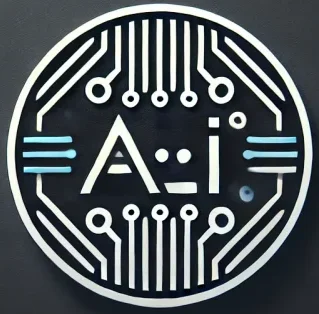### Embracing the Future: How Artificial Intelligence is Transforming Industries
In recent years, Artificial Intelligence (AI) has ceased to be just a futuristic concept and has become a robust tool that is reshaping the way businesses operate across various industries. From healthcare to finance, and from retail to manufacturing, AI technology is at the forefront of driving innovation and efficiency. In this article, we delve into the transformative power of AI, exploring its applications, benefits, and the future prospects it holds.
#### Understanding Artificial Intelligence
Artificial Intelligence refers to the simulation of human intelligence in machines that are programmed to think and learn like humans. The core of AI lies in its ability to process large amounts of data at speeds incomprehensible to human beings, providing insights and automation that were previously unattainable.
#### Key Applications of AI Across Industries
1. **Healthcare**: AI in healthcare is a game-changer. It’s being used for everything from diagnosing diseases with more accuracy than ever before to personalizing treatment plans for patients. AI-powered tools can analyze historical health data, genetic information, and medical images to assist in faster and more accurate diagnosis.
2. **Finance**: In the finance sector, AI is revolutionizing the way we understand and manage money. AI algorithms help detect fraudulent transactions and improve security. Moreover, AI-driven robo-advisors are providing personalized investment advice at a fraction of the cost of human advisors.
3. **Retail**: AI is enhancing the shopping experience by personalizing customer interactions. Through machine learning algorithms, AI can predict shopping patterns and suggest products tailored to individual tastes. Additionally, AI-driven logistics are streamlining inventory management and delivery processes.
4. **Manufacturing**: In manufacturing, AI-driven predictive maintenance of machinery helps in reducing downtime and operational costs. AI systems are also being used to optimize supply chains and improve manufacturing processes, thereby increasing productivity.
5. **Automotive**: The automotive industry is leveraging AI not only in autonomous vehicles but also in manufacturing processes, improving safety and efficiency. AI algorithms are used to predict vehicle maintenance issues and optimize traffic management systems.
#### Benefits of AI Integration
– **Increased Efficiency**: AI automates routine tasks, freeing up human workers to focus on more complex problem-solving and innovation.
– **Enhanced Accuracy and Decision-Making**: With its ability to analyze vast amounts of data, AI supports better decision-making by providing precise analytics and forecasts.
– **Cost Reduction**: Over time, AI technology can significantly reduce costs by optimizing various operational processes and reducing the need for human intervention.
– **Improved Customer Experience**: AI’s predictive capabilities enable businesses to offer personalized experiences, enhancing customer satisfaction and loyalty.
#### The Future of AI: Trends to Watch
As AI technology continues to evolve, several trends are shaping its future:
1. **AI and Ethics**: As AI becomes more integrated into daily life, ethical considerations are becoming paramount. Issues such as data privacy, surveillance, and decision-making biases are prompting discussions about regulations and ethical guidelines for AI development.
2. **AI in Edge Computing**: With the rise of IoT devices, AI is moving towards edge computing where data processing happens on local devices rather than in a centralized data center. This reduces latency and makes real-time data processing possible.
3. **Explainable AI (XAI)**: There is a growing demand for AI systems that not only provide outcomes but also explain their decision-making processes in a transparent way to ensure trust and accountability.
4. **Augmented Intelligence**: Rather than replacing humans, there is a shift towards augmented intelligence, which emphasizes AI’s role in enhancing human capabilities and intelligence.
#### Conclusion
AI technology is not just a tool of the future; it is a revolutionary force that is here to stay. Its integration into various sectors is proving to be beneficial in enhancing operational efficiencies, reducing costs, and improving service delivery. As businesses continue to adopt AI, it is imperative to consider the ethical implications and strive towards developing AI that is both powerful and responsible. The journey of AI is an exciting one, full of opportunities and challenges, shaping a new era in technological advancement.
